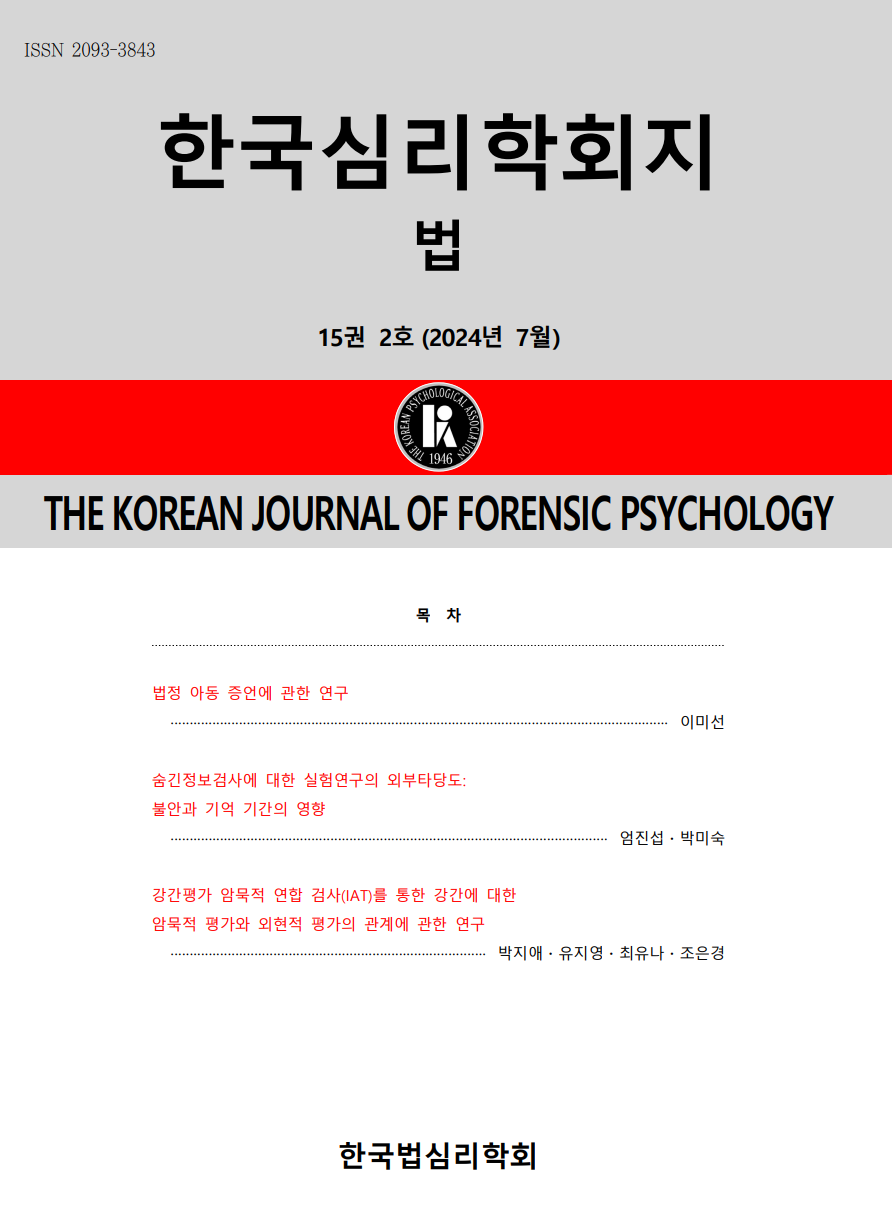open access
메뉴
open access
메뉴 ISSN : 2093-3843
ISSN : 2093-3843
This study investigated whether judgments of sexual violence involving juvenile victims vary by history of victim’s juvenile prostitution, victim’s behavior conforming to stereotypes of an “ideal” victim, and relationships between victim and perpetrator. The study also examined the effects of participants’ level of authoritarianism and rape myth acceptance on their judgments of sexual violence. A total of 335 participants(170 females, 165 males) in their 20s to 50s assessed the degree of victim blaming and perpetrator sentencing. This study examined the effects of participants’ gender and age on the judgments of victim blaming and perpetrator sentencing, and the mediation effects of authoritarianism and rape myth acceptance. As a result, participants blamed the victim more and imposed a lighter sentence on the perpetrator when the juvenile victim did not conform to the image of an “ideal” victim of sexual violence as opposed to a “typical victim”. They also blamed the victim more when the victim and the perpetrator met through a chat application than when the victim and the perpetrator had known each other. Male participants as opposed to female participants blamed the victim more, punished the perpetrator more lightly, and exhibited a higher level of authoritarianism and rape myth acceptance. The older the participants were, the more they blamed the victim and the higher they demonstrated rape myth acceptance. The effect of the participants’ gender on the judgment of the perpetrator punishment was mediated by rape myth acceptance, and the effect of the participants’ gender and age on the victim blaming was mediated by authoritarianism and rape myth acceptance.